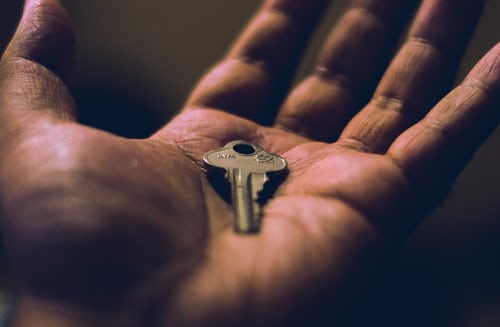Just when my heart felt as though it was healing a bit, pain tore through it again on Saturday, August 22 as we sad goodbye to my younger son’s dog Hami and helped him pass peacefully over the Rainbow Bridge.
We were, and remain, heartbroken. As anyone who has loved and nurtured a canine companion knows, the pet’s passing tears open a wound in your heart and life. Schedules and daily routines are warped. Attention focuses disappear. Wet noses, happy tongue slurps and silky fur strokes disappear. Even other pets in the house grieve and whimper as they scour the house looking for their companion.
Try as I might, I couldn’t function or concentrate well enough this past week to work on anything other than my upcoming manuscript. So I am using this post to honor Hami, who has been laid to rest near my citrus trees (where he reveled in nosing around and digging up beetle grubs).
I’m honoring him by printing the story I wrote about him that appeared in the recently released (last month) Chicken Soup for the Soul book, The Magic of Dogs.
Here is “Transforming Hami” in its entirety.
Transforming Hami
Hamilton von Watts was the last dog I would have adopted. When we first saw him, the big German Shorthaired Pointer/black Lab mix lay abjectly in his cage. A yellow identification tag noted his name.
But I wasn’t going to have much say in the adoption matter. This was going to be our thirteen-year-old son’s dog, and he was doing the selecting. I groaned when Cory asked the shelter employee to let Hamilton out of the cage to visit with him.
The seventeen-month-old mutt looked worse on inspection—filthy, with open wounds and a battalion of ticks. Touching his punctured ear elicited a sharp whine; patting him produced a dust cloud. His puffed right eye oozed, and he emitted an odious scent. But I could see the love pass between Cory and Hamilton when their eyes locked.
And then Hami plucked our heartstrings by flashing a toothy smile, a grin he produced by wrinkling up his nose, and baring his brilliant white teeth and chomping them together several times. An energetic snort punctuated each chomp. He even mustered enough pizzazz to happily paw the air. I could almost hear him cry out, “Please give me a chance!”
An hour later, after Cory and my husband, Chris, filled out the paperwork and plunked down the money for him, Hami bounded around the back of our Suburban. He seemed so grateful. I, however, remained dubious.
Hami’s introduction to our home was rough. He charged our cat, Tibbs, who attempted a warm nose-to-nose welcome. Our Queensland Heeler, Sydney, gave us an alarmed, now-you’ve- ruined-the-neighborhood look.
And while he clearly adored Cory, he cowered and scampered away from our eighteen- year-old son Parker and his buddies and acted anxious around Chris. When Chris removed his belt while undressing, Hami bolted from him. When friends visited, the sixty-five-pound dog growled and hid behind my legs or beneath my skirt. His legs quivered as he peered out at intruders. When frightened, which happened often, he urinated on the floor.
Hami was also undisciplined. He ignored commands and boundaries and led us on lengthy hunting expeditions for him through our hilly, cactus-filled neighborhood. A frequent refrain around our house was “Cory, come get your dog!”
I felt guilty about my uncharitable feelings, but Hami aggravated me. It wasn’t that I didn’t like dogs. Chris and I had cared for six of them so far during our marriage. And Chris said he knew I was “the one” because I was the only female his Border Collie, Felina, had ever liked.
But I liked high-IQ, compliant dogs. Classy dogs with manners and respect for my personal space. Not unruly dogs who barreled into rooms, knocking things—and me—over. I tried to avoid him, but as much as I tried, he insisted on following me around like a
sheep to a shepherd. He got underfoot when I worked in the kitchen. When he’d had enough roughhousing with Chris and the boys, he’d scurry away from them and lean against me for protection. I’d shoo the guys away and tell them sternly that the dog had had enough.
He seemed so grateful for everything I did for him, no matter how small it was—stroke his back, acknowledge his presence, or feed him. He’d give me that big, chompy smile and slurpy kiss and then tap dance in front of me.
I think Hami knew his perseverance would wear me down eventually. His smile, gratitude and amusing antics chipped away at my defenses. I couldn’t keep my heart from surrendering to this hurt dog. But my rigid brain needed coaxing to follow suit. I wrestled against frustration and expectations, prayed for divine patience, and changed my behavior.
Instead of avoiding Hami, I gritted my teeth and embarked on a mission to uncover his potential. I knew it had to be there under all that fear and pain. But could the trauma be undone?
I instructed Chris and the boys to top his kibble with nutrient-packed chicken and duck eggs. Cory spent hundreds of dollars of his own money to heal Hami’s wounds and eradicate his external and internal vermin. We lavished love and attention on him and made sure we avoided his anxiety triggers. When I sat on the floor next to him and massaged the right hip that caused him to limp and whine so much, he’d heave exaggerated sighs and lick my face. It took weeks of scrubbing ground-in grime from his broken body to uncover his sleek, dark chocolate coat.
And with all that love and attention, a miracle occurred. As the grime washed away, and his body and heart healed, Hami transformed. His formerly ragged coat glistened in the sunshine. He started trusting and obeying. His once fearful eyes emitted security. And he gained confidence in himself.
He started doing surveillance patrols around the house. He learned his boundaries and responded to commands. He became comfortable with our friends and made the rounds among them for fanny scratches and ear rubs. Every morning, primed to enjoy another day, he smiled and tap danced. In fact, he smiled all the time—when he went outside and when he was invited back in; when he was fed; and when he got leashed up for a walk. The refrain around our house became “Everyone should be as happy as Hami.” Even Sydney started to pal around with him.
In the process, I realized I was learning from Hami.
He taught me to be eternally grateful for everything, even the small things. Especially the small things. And to lighten up. He’d wheedled the dormant Type B personality out of me, the one I had long ago discarded. In the chaotic swirl of wifedom, motherhood and work, I’d become uptight, rigid, and preoccupied by trivial things. Hami re-directed my attention and taught me to smile at each new day.
And I’m still learning.
The ravages of time and a neurological disease wasting his hind leg muscles have taken their toll. But thirteen-year-old Hami is teaching me how to decline physically and age gracefully. I’m taking notes:
- If you feel inclined, sleep a little more, and make the most out of what you can do when the body parts are limbered up and operating properly, which may take a while after a nap.
- Don’t be too proud to let someone help you stand upright to get moving. Hobble outside to do your business, bark at the Amazon Prime guy, and soak up the sunshine. Life is good.
- If you forget the rules and do something wrong, give your person a brilliant smile and bury your head in their lap. It works every time.
- Never let your infirmities steal your gratefulness.
Not long ago, I gazed into Hami’s clouded eyes, cupped his gray muzzle in my hands, and thanked him for what he’d done and for being patient with me. He heaved a sigh, plopped onto the floor next to me and fell asleep, seemingly satisfied that I’d understood his purpose. Cory’s selection had been divinely directed. Love and patience had transformed Hami—and me.
—Andrea Arthur Owan—
I’m looking forward to being reunited with this special dog on the other side of the Bridge.
Until next week, when we’ll return to the next post in our grieving recovery series, love your pets well and thank God every day for them.
Blessings,
Andrea
“Beloved, I pray that you prosper in all things and be in health, just as your soul prospers” (3 John).
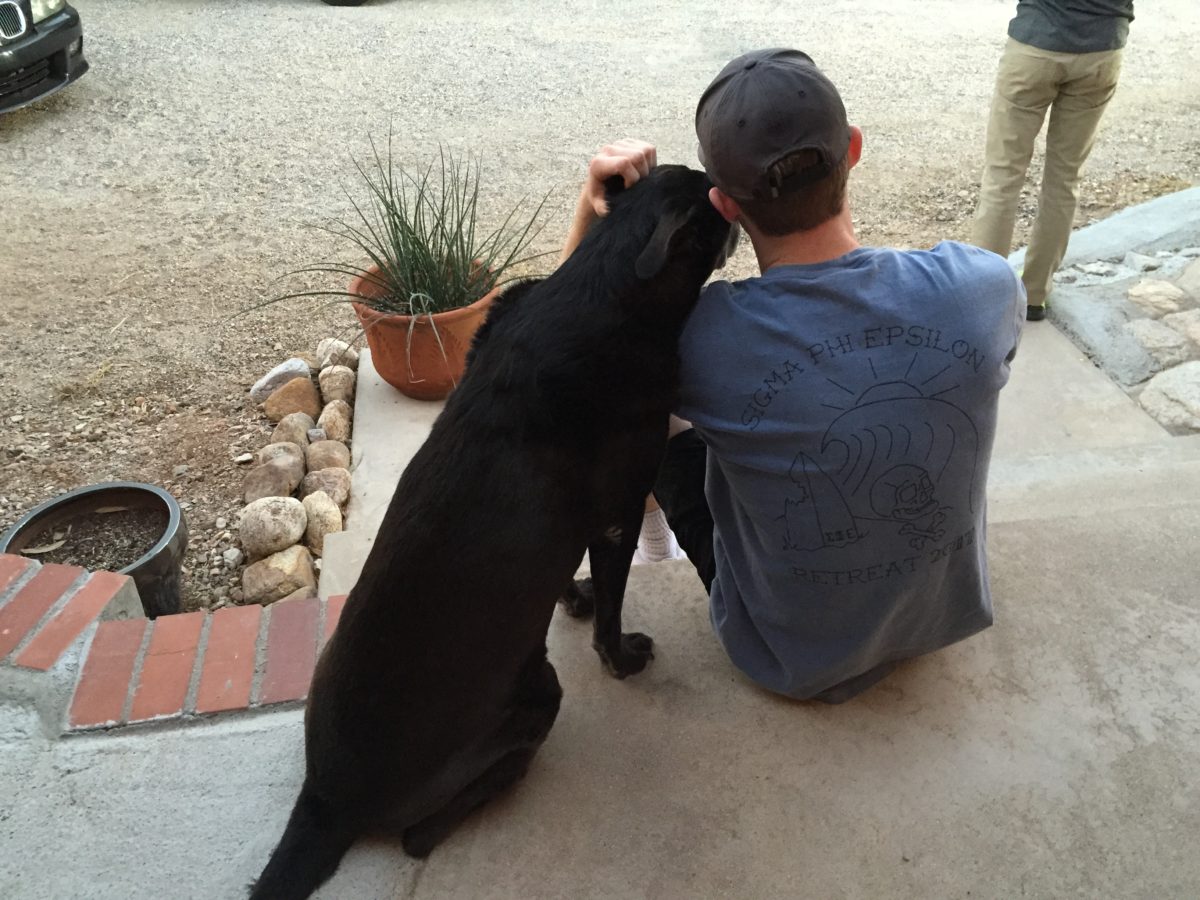






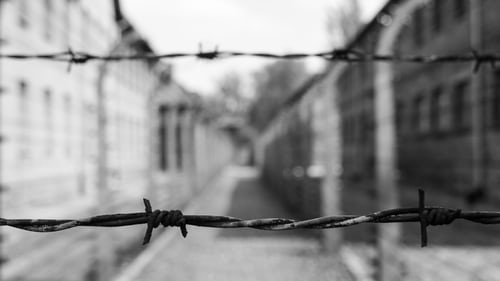



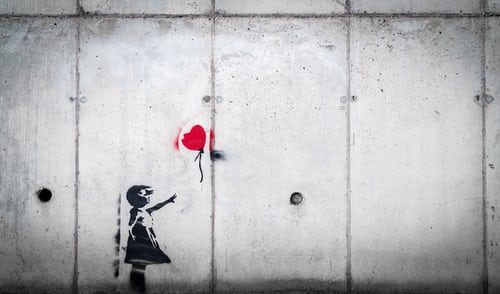

 Andrea Arthur Owan, M.S., A.T., R., is a fitness pro, award-winning inspirational writer, memoirist, and senior-ordained chaplain (IFOC). She helps people to thrive physically, emotionally, and spiritually, and recover from grief, loss and trauma.
Andrea Arthur Owan, M.S., A.T., R., is a fitness pro, award-winning inspirational writer, memoirist, and senior-ordained chaplain (IFOC). She helps people to thrive physically, emotionally, and spiritually, and recover from grief, loss and trauma.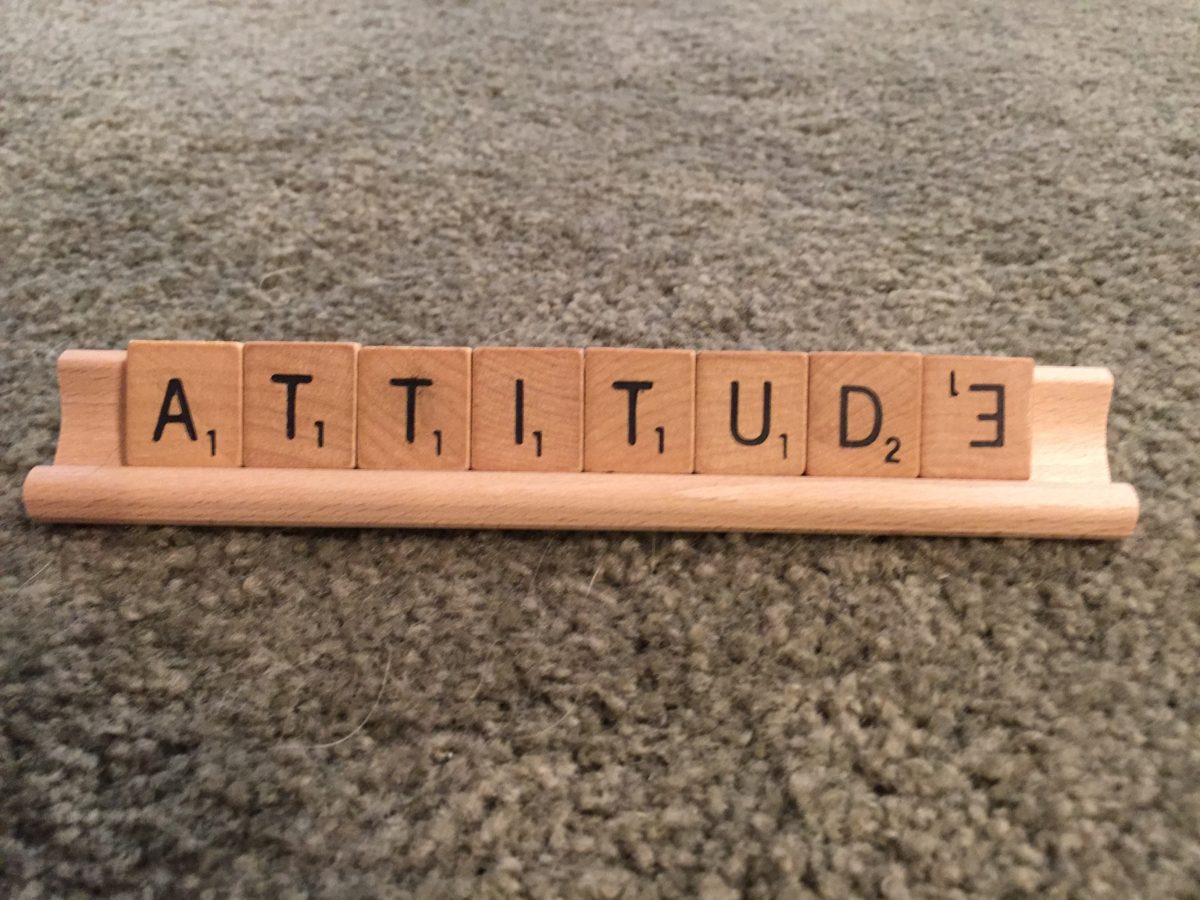






 Andrea Arthur Owan, M.S., A.T., R., is a fitness pro, award-winning inspirational writer and senior-ordained chaplain. She works and writes to help people recover from trauma, grief and loss and to thrive — physically, emotionally, and spiritually.
Andrea Arthur Owan, M.S., A.T., R., is a fitness pro, award-winning inspirational writer and senior-ordained chaplain. She works and writes to help people recover from trauma, grief and loss and to thrive — physically, emotionally, and spiritually.





